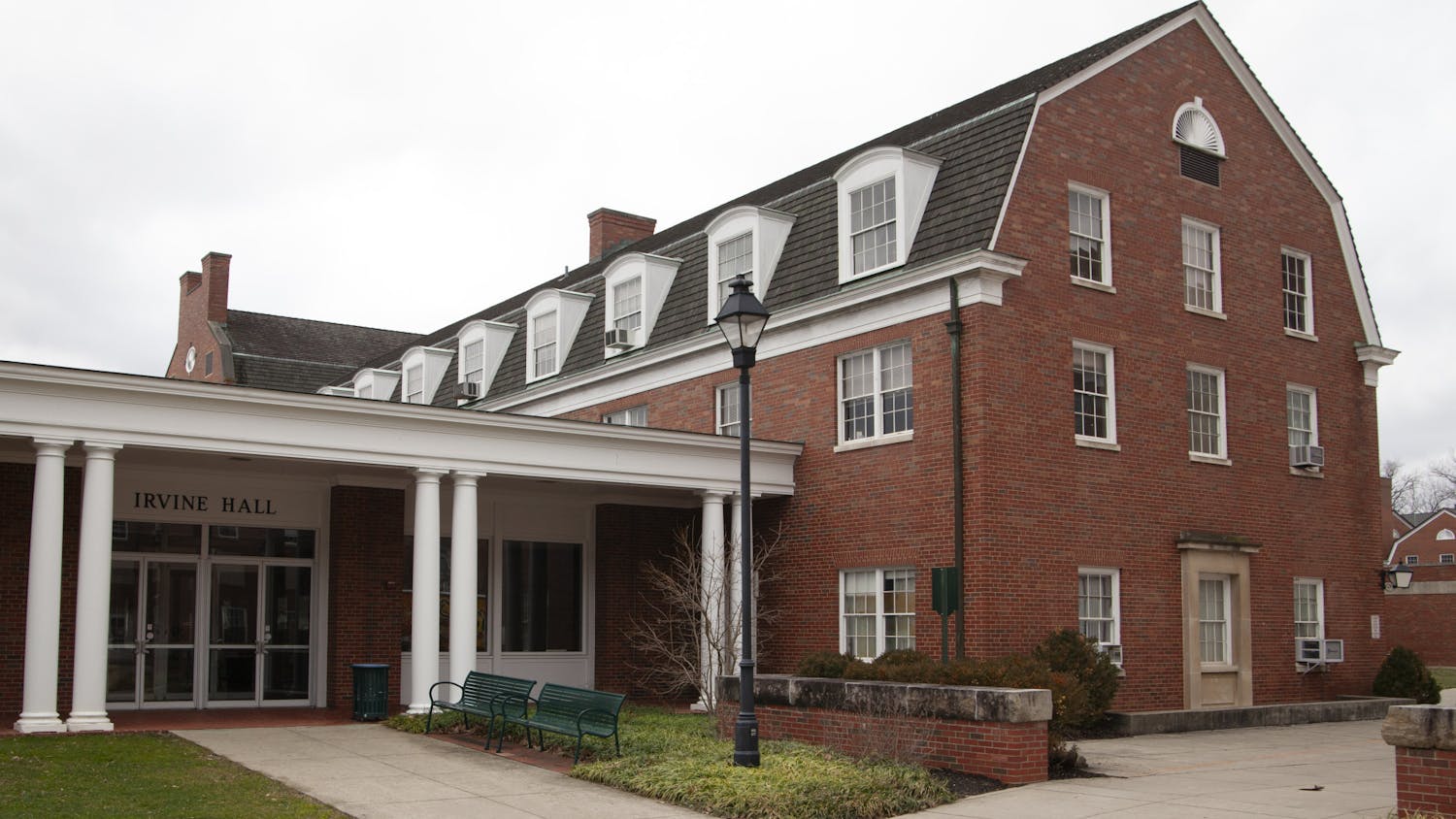Ohio University announced it’s pausing race-based scholarships. Around $400,000 worth of scholarships will not be awarded to students in the 2024-25 academic year, according to E.W. Scripps School of Journalism Professor Nerissa Young.
This comes after Ohio Attorney General Dave Yost released a letter of his interpretation of the 2023 U.S. Supreme Court decision that knocked down race-based college admissions.
Yost’s letter holds university employees personally liable for using race as a factor in admissions.
The university announced it’s reviewing the selection criteria for admissions and scholarships to ensure it's following the law, according to an OU news release.
“We are temporarily pausing the awarding of impacted scholarships, which represent a small but important subset of our annual awards,” the release said.
Dr. Eddith Dashiell, director of the E.W. Scripps School of Journalism and journalism professor said she disagrees with the Attorney General’s interpretation of the Supreme Court’s race-based college admissions case.
“The decision focused only on university admissions decisions that ‘turn on an applicant’s race’,” Dashiell wrote in a letter obtained by The Post. “This decision had nothing to do with scholarships. The word ‘scholarships’ appeared only once in the entire opinion– and that was only in passing.”
Dashiell said although she does not have a law degree, she has more than 35 years of experience in researching, interpreting and teaching case law.
“After reading this decision numerous times, I’m convinced that efforts to apply the U.S. Supreme Court’s Students for Fair Admissions v. Harvard (2023) decision to also include diversity (race-based) scholarships provided by donors is a political move–not a legal one,” Dashiell wrote.
According to OU’s diversity and inclusion website, the university strives to “uplift diverse identities, cultures, experiences and perspectives.”
The university even won an award in October 2023 for its DEI initiatives and policies, according to an OU news release.
Despite the university’s commitment to DEI, students and faculty remain “uncomfortable” about the future of diversity scholarships, and DEI initiatives at OU.
“Now is the time for Ohio University to have ‘hard conversations and call out prejudice’ regarding the misapplication of Students v. Harvard to apply to existing DEI scholarships,” Dashiell wrote. “OHIO has talked the talk when it says it believes in and promoting diversity, equity, and inclusion. Now it is time for OHIO to walk that talk.”
In a speech at the annual E.W. Scripps School of Journalism awards, Dashiell apologized to students and donors for her inability to share almost $46,000 in scholarships for underrepresented students.
Cierra Smith-Carter, a recent graduate student, said she recognized the need for minority student representation on campus during her undergraduate years. She is also the co-founder of The Outlet, a student group for Black, Indigenous and people of color.
“We've really put all of our heart and soul into making that space available and it's been relatively successful,” Smith-Carter said. “We do more fun events, some educational events, cultural stuff, just wanting to have a safe and comfortable space for (minority students) to just be themselves.”
Nia Menifee, a freshman studying pre-nursing, said the removal of scholarships is unfair.
“I think if you really want to be a good, respected college, this isn't the way to go about it,” Menifee said. “I really just don't see the logic behind the situation.”
Menifee said she’s concerned the university’s decision will drive minority students away from Athens, which may not change the quality of education but could have other effects.
“I just don't know if it's going to be the same people learning,” Menifee said.
Data from OU’s Historical Race Report shows Black student enrollment rates from 1976 to 2023.
The most recent Black student enrollment rate is 5.2%, which is down 0.2% from 2022, according to the report.

Associate Professor of Political Science Vince Jungkunz said he is concerned the removal of diversity scholarships will affect students' educational experiences.
“Scholarship is so important,” Jungkunz said. “With the relationship between race and socioeconomic status, the ability to pay for college is going to be much more difficult.”
Black graduates with bachelor’s degrees are five times more likely to default on loans compared to their white counterparts, according to a report from Congress’s Joint Economic Committee. Large debt burdens and high default rates on loans affect employment, wealth and credit, which reinforces generational economic disparities.
As a result, it is harder for Black borrowers and their families to purchase a home or start up a business, and instead opt for lower paid, public service jobs.
Former Diversity, Equity and Inclusion Coordinator at Mount St. Joseph University Samu-El Fowler, said he is concerned about the “attack” on DEI and its reflection on larger issues in America.
“The same individuals who oppose these DEI initiatives are often the ones who are comfortable with systems, policies or structures that oppress other groups of people,” Fowler said.
DEI programs–like peer mentorship organizations, career and academic readiness workshops and multicultural student unions–help draw a more diverse student population, Fowler said.
“I have witnessed the positive impact of DEI initiatives on underrepresented students, including those who are not Black,” Fowler said. “Some of these students, if they don't have these scholarships and these initiatives, won't go to college.”

According to Fowler, different affinity groups are especially important to universities because they promote a sense of acceptance and belonging among underrepresented students.
DEI brings together individuals from diverse backgrounds, experiences and perspectives,” Fowler said. “So that in itself is going to foster a culture of innovation because you have different people from different backgrounds.”






